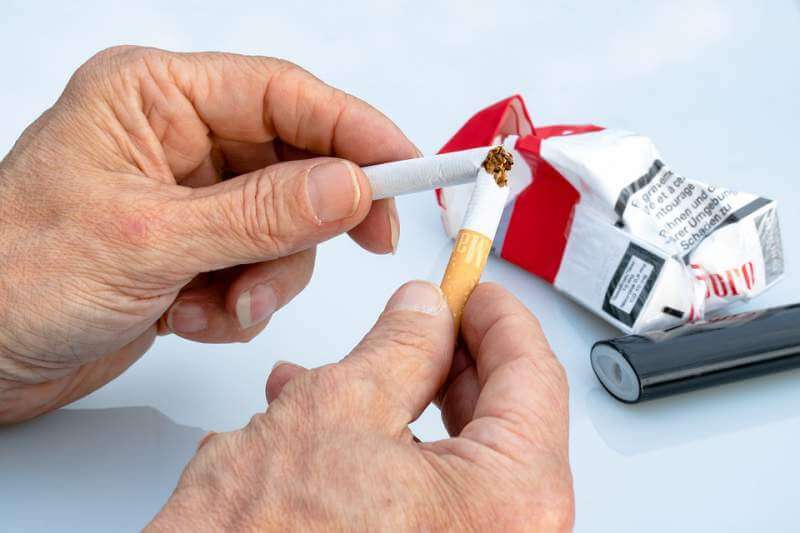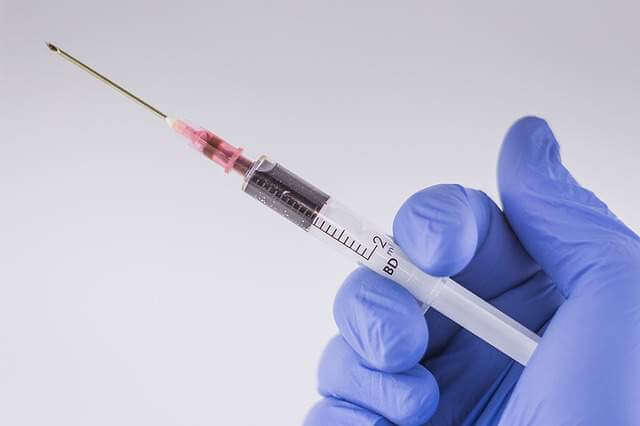Nicotine, the primary compound of cigarettes, tobacco, snuff, and cigars contain more than 40,000 chemicals. It can make up about 0.6% to 3.0% of the weight of cigarettes. Hence, when you smoke, this amount of nicotine will be inhaled and absorbed via lungs and liver which can reach brain and blood in 7 seconds later. Nicotine is incredibly addictive, and it ‘s hard to quit. Besides, during your withdrawal, you will encounter many issues such as anxiety, sleeplessness, delusion, and irritability.
How long does nicotine last?

Whenever you smoke or inhale the smoke from tobacco or cigarettes, nicotine will be absorbed into your blood and brain. Nicotine will be broken down by the enzymes in the liver to become cotinine. The amount of cotinine will be proportionate to the amount of nicotine you inhaled. These compounds will eventually dispose of via your kidneys.
Cotinine which is the primary compound after nicotine’s break down can stay up in your body for three months after inhaling. Besides, the amount of time it stays in your body will rely on the frequency of your nicotine ingestion.
Scroll down for more information about how to detect nicotine in your blood, saliva and urine system and how long it will stay there.
NICOTINE IN URINE

Though there are differences between kinds of cigarettes or tobacco, it is estimated that 12 milligrams of nicotine contained in one cigarette. 1 mg of this amount of nicotine will be absorbed into your bloodstream. Once the blood has absorbed the nicotine, the amount of nicotine will be measured by nanograms per milliliter (ng/ml). The amount of nicotine of a daily smoker will typically more than ten ng/mL, and sometimes it can be as high as 500 ng/ml. If you don’t smoke frequently, cotinine will be in your urine system for about four days. Besides, cotinine might be detectable for three weeks with regular exposure to nicotine.
How long will traces of nicotine be in your blood?

Nicotine will be present in your blood for a few days whereas cotinine can be present in your blood for about ten days. Nicotine in the blood can be detected by using tests that are either quantitative or qualitative. These types of tests not only can detect nicotine and cotinine but they can also detect another breakdown product called anabasine. However, there might be false results due to the presence of thiocyanate which can be found in broccoli, cabbage, and some certain medications.
NICOTINE IN SALIVA AND HAIR

How long will nicotine stay in your saliva as well as hair follicles?
It might take up to 4 days for nicotine and cotinine to be entirely flushed from your saliva. After your last exposure about three months, traces of nicotine still can be found in your hair follicles. Moreover, regarding the hair test used, traces of nicotine still can be found after one year since your last exposure. Though hair testing is possible, it is not as common as blood, urine and saliva testing.
HERE ARE SOME FREQUENTLY ASKED QUESTIONS:

- Is there any way that I can determine the amount of nicotine in my system at home?
It’s possible to buy urine or saliva test at the drugstores to check nicotine in your body. These tests will give “yes” or “no” answer instead of giving you how much nicotine in your body. Besides, these tests are not highly recommended by doctors. Hence, their reliability and accuracy are not as appreciated as those tests run through doctor’s office. - What factors affect the amount of time nicotine stays in your body?
The results might vary from person to person though there are general guidelines for the period nicotine will be present in your body. Regarding your situations, nicotine might stay longer or be flushed out earlier. - Smoking frequency
a. Those who smoke might be divided into three different types of users:
– Light users are those who smoke once per week
– Moderate users are those who smoke more than once per week and less than three times per week
– Heavy users are who smoke on a daily or weekly basis.
Regarding your smoking behavior, traces of nicotine can be cleared from your system within three days since your last exposure if you’re a light user or it can be detectable for up to 1 year since your last smoking if you are a heavy user.
b. Your lifestyle, genetic and certain medication.
There are some certain factors can affect the period that your body requires to metabolize nicotine and expel it such as age, genes, hormones and liver function.
For instances,
The younger you are, the shorter it might take your system to discharge nicotine.
There are researchers indicate that Caucasian, as well as Hispanic, obtain higher speed to metabolize nicotine than African or Asian.
It is reported that women especially those are taking estrogen or are pregnant may metabolize nicotine faster than men.
The rates nicotine metabolize may vary regarding to their liver enzymes from person to person.
Besides, there are certain medications might impact the speed of your body metabolizes nicotine.
Those drugs that can increase accelerate the metabolism of nicotine are antibiotics like rifampin and phenobarbital. On the contrary, those medications that can slow down the rate of metabolism of nicotine are hypertension medicine like amlodipine and antifungal such as ketoconazole. - How can you clear nicotine from your body?
The best method to dispose nicotine from your body is to quit smoking and abstain from all cigarette products. By doing this, your system can concentrate on breaking down nicotine and expel it. There are a few things you might want to do to accelerate this process
Consuming more and more water can significantly help you release more nicotine via your urine system.
Doing exercise can boost your metabolism rate which lead to dispose nicotine quicker via sweat as sweat can take up nicotine and its byproducts.
And lastly, you can consume more antioxidant food such as carrots and oranges which can significantly help you boost your system’s metabolism rate. Besides, these food also contain substances such as fiber which can be extremely helpful in disposing toxin caused by nicotine and its byproducts.
Reference:
https://www.ncbi.nlm.nih.gov/pmc/articles/PMC2946180/

The gums and the teeth also grad the traces of nicotine. A smoker is immediately recognizes by the color of his gums. Thanks.